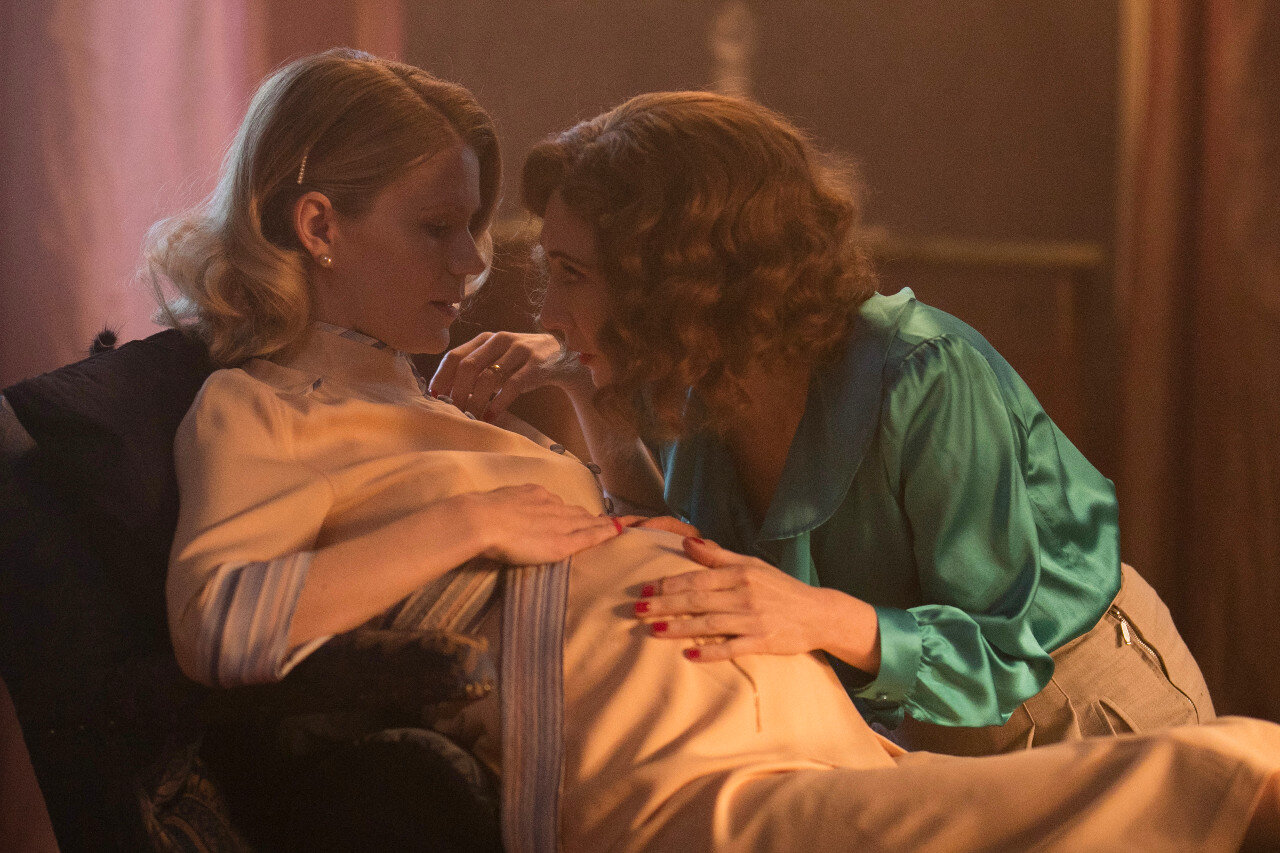The Affair: Europudding in a Lovely Real-Life Terrarium
By Liam Lacey
Rating: C
The pandemic may have created changes in our movie-viewing experiences beyond the change of venue from the multiplex to the living room couch.
For confined viewers, escapism isn’t just about stories but a chance to experience other landscapes, other cities, other houses. Consider the case of The Affair, a middlebrow Mitteleuropa drama from Czech director Julius Sevcik, adapted from Simon Mawer’s Booker Prize-nominated novel, The Glass Room.
Set in what is now the Czech Republic, the story — centred on an unconsummated lesbian love affair — sprawls over several decades, from around 1930 through the Holocaust, the German occupation, and the Soviet takeover. The best way to appreciate The Affair is to sidestep its pot-boiler pretentious and think of as an exceptionally elegant episode of House Hunters International.
The setting is a real-life modern architecture shrine: the Villa Tugendhat, a private house built by architect Ludwig Mies van de Rohe in 1930 for a wealthy German-Jewish couple, Greta and Fritz Tugendhat. The Tugenhats only lived in it for eight years before they were compelled to flee.
After decades of Nazi and Soviet occupation and serving sundry public purposes, the building was restored in the last decade as an architectural museum and UNESCO heritage site. (Before COVID, I’d planned to visit it last summer on an anniversary trip to Central Europe.)
The long, low, three-story house, which is built into a hillside in the city of Brno, is notable for its glass retractable wall on its main floor and a partially translucent onyx wall, which changes colour with the sunset. The house, with its clear walls and open-concept design, embodies an ideal of modern rational living: “When I allow these spaces and everything which is inside them to influence me as whole,” wrote its first owner, Fritz Turgenhat, “I clearly feel what beauty is, what is truth.”
Villa Tugendhat was the direct inspiration for Mawer’s otherwise fictional novel, a sort of if-these-walls-could-talk imaginary leap through mid-century European history.
Andrew Shaw’s script, which pares down the number of characters, focuses on the idealistic newlyweds, Liesel Laundauer (Swedish actress (Hanna Alström of The Kingsmen movies) and her husband, Viktor (Danish actor Claes Bang) who hand a blank cheque to famous architect Von Abt (Karel Roden) to create their avant-garde dream home, a sort of human terrarium symbolizing the openness and clarity of their love and idealism of between-the-wars first Czechoslovak Republic.
PROUDLY SUPPORTS ORIGINAL-CIN
Of course, openness and rationality don’t always accommodate human desire. Trouble starts when Liesel’s sexy bohemian friend, Hana (Dutch actress Carice van Houten, a.k.a. Melisandre in Game of Thrones) makes an ambiguous pass at her friend, while pretending to caress her baby bump.
Soon after, Viktor is discovered having a fling with the nanny (it’s hard to keep secrets in glass houses). Before the marriage can collapse, the Nazis are at the border and Liesel and Viktor must escape to Switzerland with their two children.
Hana remains behind, keeping an eye on the precious house while acting as the “whore” of a German airplane designer. The women continue to exchange passionate letters, read in voiceover, as the screen chronicles their hair and dress changes.
At one point, we seem to have reached the 1960s, and Liesel — posing as a visiting journalist —witnesses gross drunken Communist Party members having an actual communist party in her beloved glass home. Happily, she finds her friend again, and while they each have a few tendrils of grey hair to show for their years of separation and suffering, it appears they can pick up where they left off.
The real star here, the villa, continues to defy the passage of time. Inside the house, Martin Strba’s camera catches the reflecting light on the plate glass windows, the shadow of the spiral ladder to the basement, the curved wooden walls, the travertine floors, and the golden-brown onyx wall that glows with the sunset.
I understand Villa Tugendhat was also the setting for the 2006 cannibal horror thriller, Hannibal Rising, which I haven’t seen. I can’t wait.
The Affair. Directed by Julius Sevcik. Written by Andrew Shaw. Starring Hanna Alström, Carice van Houten, Claes Bang and Karel Roden. Available on digital video on demand beginning March 4.



